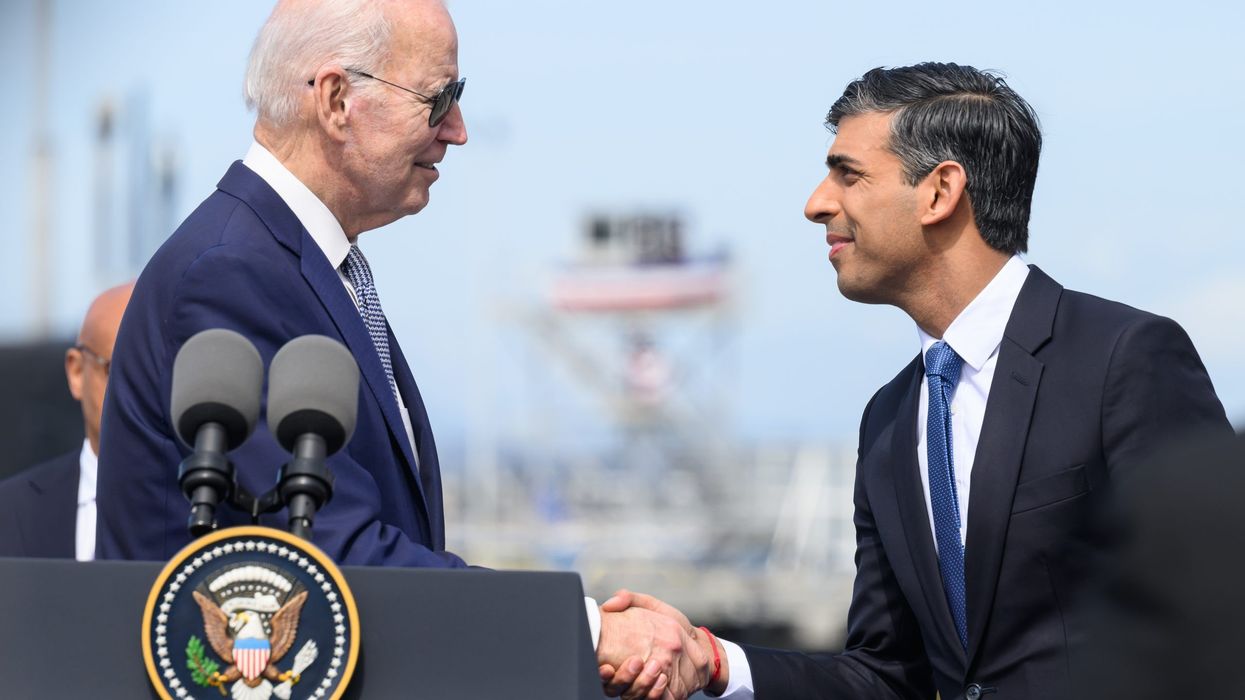Prime Minister Rishi Sunak is scheduled to engage in discussions with U.S. President Joe Biden, next week, focusing on enhancing economic relations and exploring avenues to provide ongoing military assistance to Ukraine amidst its conflict with Russia.
During his visit to Washington on Wednesday and Thursday, Sunak will hold meetings with Biden, members of Congress, and prominent U.S. business leaders. However, Sunak's spokesman clarified on Tuesday (30) that formal negotiations for a free trade agreement will not be part of the agenda.
"The visit will be an opportunity to build on the discussions that the prime minister and President Biden have had in recent months about enhancing the level of cooperation and coordination between the UK and U.S. on the economic challenges that will define our future," the spokesman said.
"There will also be an opportunity to discuss issues including sustaining our support for Ukraine."
On his inaugural official visit to Washington since assuming the role of prime minister in October, Sunak aims to foster improved relations with the US.
The relationship between the two countries has faced strains following Britain's departure from the European Union in 2020.
In April, there were speculations and concerns about President Biden's stance toward Britain when he spent a significant portion of his time in the British province of Northern Ireland before proceeding to the Irish Republic for an extensive series of meetings.
However, a White House official dismissed any notion of Biden being "anti-British" at that time.
The prospect of negotiating a free-trade agreement with the UK has lost momentum under the Biden administration, despite it being previously hailed by proponents of Brexit as one of the significant advantages of leaving the European Union.
Under the previous administration of President Donald Trump, discussions regarding a potential trade deal had advanced. However, progress slowed following President Biden's assumption of office, ultimately leading to a pause in the talks.
On Tuesday, Sunak's spokesperson confirmed that the upcoming visit would focus on exploring alternative methods to reduce trade barriers, such as establishing agreements with individual U.S. states.
Additionally, the White House issued a statement indicating that the leaders would also address the situation in Northern Ireland, which has experienced a lack of devolved government for over a year.
The relationship between Britain and the US is founded on strong connections in defense, intelligence, economy, and culture. The two nations largely align in their support for Ukraine.
Sunak graciously accepted Biden's invitation to visit the White House, extended in March following an amicable meeting in San Diego to launch the AUKUS submarine alliance involving the United States, Britain, and Australia.
During their initial meeting, the two leaders seemed to establish a positive rapport, with Biden acknowledging Sunak's educational background as a graduate of Stanford University.
Additionally, Biden expressed interest in visiting Sunak's residence in Santa Monica, which he still owns.
(Reuters)




